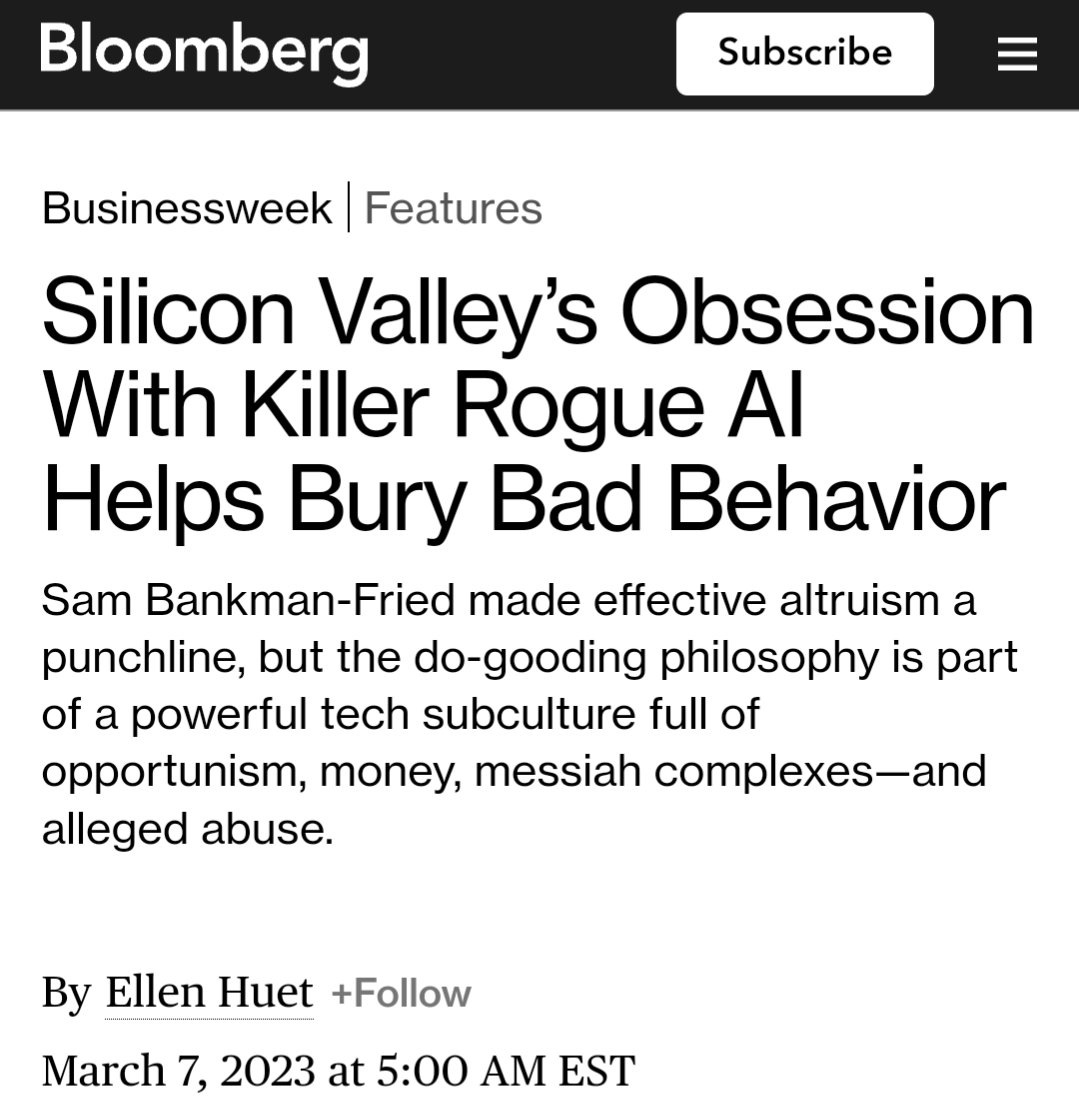Prototyping the Future
Observation Notes #3
Some short thoughts on Disruptive Networks, AI, The Right and The Future.
“The side that wants to be left alone will always lose to the side that wants to win.”
Auron MacIntyre
This oft repeated line from Auron, has stuck with me these last few days as I try to strike a balance in my own thoughts in the public availability in technology, and my innate techno-skepticism. While I am not anywhere near as bad as the famed Ned Lud, or even Wendell Berry in the reasons why he wouldn’t buy a computer, I often have the wriggling thoughts that come out of every science fiction techno-dystopia run through my mind when I see the latest bit of AI voice recreation or AI Generated Image. I often tell people to read Wendell Berry’s Why I Am not Going To Buy A Computer, for goodness’ sake, yet here I am taking a position rather opposite of my usual aversion.
There has been now for some time, an openness which has been projected in different directions all over the place, especially in regards to open source technologies, betas, and taking the research and projects for one’s self and credentialism be damned. The question that has been posed by many, from James Poulus to Nate Fischer, is how does anything with a soul breakthrough this techno-optimism we’ve seen from those in Silicon Valley, Palladium Mag, and Start-Up Culture?
Don’t get me wrong, the meme about wanting to live on a farm or learning a trade is still a meme because there is intrinsic value to it. However, not every man is a farmer, and not every man will be a brick layer. I know many farmers and brick layers, men far smarter than me in many respects who know that their jobs will still be needed no matter what the future holds. Yet in the spaces of technology there is some fear, concerns raised by both those who benefit from the ruling ideology as well as those on the outside looking in. I am often quick to be concerned myself, as I listen to the Dagoth-Ur memes of the Eleven Labs Beta AI voice tool and safely assess whatever is publicly available is probably five or so years behind what’s private or contracted out by government authorities.
Will we inevitably sow the seeds of our technological self destruction as a species? Potentially, as any dromologue will tell you that the faster we accelerate the faster we run the risk of creating accidents we may not recover from. However, such risks come with any technological innovation, even those at the Manhattan Project had once feared setting the atmosphere ablaze ending all life as we know it. Yet mankind presses on, and even on the precipice of untold advances in machine learning, quantum computing, and artificial intelligence we ponder what this might mean for the future of our species.
However in an age of the “Internet of Things” and the growing push for digital identification and verification through greater centralized government and bureaucracy one must ask where we might go with this technology, and if something can be done to stave off pending dystopias or our own war with the machines. Not saying that the Animatrix is the route we’re on, but rather that we are at an unprecedented moment to ensure that the technology that could lead to our destruction is rather used against those that wish to automate the humanity right out of us. That at this moment there is the opportunity to hoist the silicon petards upon those advocating for solutions to problems that they created.
Despite potential limitations to the technology, or its rapidly growing advances, I think that there is time where the skilled, concerned, and ideologically opposed have a unique opportunity to change the course we’re on. To change the rails and avoid the integral accident that will inevitably come from those ushering in automated, managerial dystopia under the guise of effective altruism or global governance.
This had been more fully fleshed out to me when I had visited the New Founding Offices in Dallas last week, in which you can listen to yourself, about how the average American Facebook user is worth about $200 a year. Not a very valuable user network, compared to getting countercultural projects funded through the power of fandom. Of course nothing helps more than meeting up in person, and setting out with your own means and networks to get a project started to facilitate the connections of wealth, know-how, and the ideas that might change the world.
However one mustn’t be so quick to throw out the proverbial baby out with the bathwater. Being pro-human and pro-survival (which sounds obvious but one must remember that progressivism is anti-civilization) means you don’t solve the birthrate problem with embryo factory start-ups or the devilishly labeled replacement migration either. Watching the current culture come up with solutions to their own problems akin to bringing in snakes to get rid of the rats…it only escalates to the total annihilation of what makes a culture actually function on a civilizational scale. A priori assumptions about a society, whether that be The Gospel or other basic assumptions to human flourishing must become the central keystones to our relationship with technology.
This of course means that we must not shy away from it either. Now I can imagine some might be saying that I am telling you to “learn to code” and I’ve been looking into where (although your comments will help) on where I could start. There is an undeveloped, or perhaps underdeveloped corollary to Conquest’s Three Laws, especially on the first one, that people are most conservative about what they know. Some kind of corollary would be that people are the most optimistic about what they don’t know, or too liberal. For instance, I am incredibly optimistic on the nature of brain computer interface for those with missing limbs, despite having no real understanding of how it works or the potential dangers behind the technology. Surely there must be similar instances of our overproduced elites?
I am inclined to believe that there is a very open opportunity, in the numbers of the technically skilled and in the cultural spaces we’re in that the multitrack drifting of the trolley problem could be avoided, or at the very least not automated. Now does this sound like entryism? I am inclined to avoid that, although you will need to learn the skills necessary to contribute to the future. What about that dreaded catabolic collapse that is often discussed, that even I find plausible in some places? As my friend Conscious Caracal will tell you, South Africa is merely living in the West’s future. Yes, from Jackson, Mississippi to the surprising commonality of train derailments, there is that problem.
Yet the technically skilled both in the trades and technology will to some degree work together in this political vision of the future. Not in some proletariat worker’s revolution mind you, after all nothing makes the worker’s of the world unite more than a bunch of Trump voting, casually racist tech bros and oil workers agreeing that this current administration and the state of the nation incompetently going off the rails. The techno-optimism of start up culture has also brought about a techno-messianic materialism, a weird bastard child of the prosperity gospel that has been perfectly aligned for the effective altruists and H-1B Visa Posterchildren from India.
We must prototype the future for ourselves, and unlike Adam, take the creations we’ve made and ensure that they do not end up astray by the deceiving notions of global governance or ESG. Unlike the so called “Legion” of Anonymous, which feels to be nothing more than the edgy (in a hot topic kind of way) friend of the US Intelligence Community, one must form a saintly order of those who wish to build and prototype the future into a type that it is fitting for human flourishing.
I’ve often heard of “Rubber Duck Debugging” when it comes programmers and such trying to solve a problem, by describing it to a rubber duck in hopes that by having a dialogue about the problem one will find where the problem is and solve it quickly. Blogging, project planning, and taking existing technologies for human renewal to our audiences feels like rubber duck debugging but with instead of rubber ducks we have a much more intelligent audience that can comment back. As usual with these remarks, alongside my exposure to a social-political ecosystem far bigger than the pond I usually swim in, I am probably over my head somewhere here. However your feedback is what helps in these musings.
Needless to say that realism, both in the international relations sense but the realpolitik at home, dictates the need that retreat at the moment isn’t possible lest deterrence or power is secured. With the openness of this technology (for now) a moment to strike while the iron is hot is open to us all. We must prototype the future for the flourishing of our countrymen, and strike a new path with our traditions and become the nation of settlers that we were.




I think there is real opportunity in these technologies.
One of the main issues that dissident artists (broadly conceived, to include filmmakers and game designers) have faced is a lack of studio funding and resources. This limits the scale and sophistication of their output. Low cost AI-assisted content generation can and will significantly alleviate this issue. The studio gatekeeping will be broken, and dissident artists will be able to present a better vision of the world.
But we, as the right - the side that is for life - must ensure that we are always also building the real-world reflection of these ideals; that we are not sucked totally into the AI metaverse.
An exciting task!
This is a great piece. I'm not exactly the most optimistic about the future of tech (or at least, where it is leading to), but that might just be because I've been reading too much Nick Land. Personally, I think having a solid metaphysical grounding is necessary to mitigating technodoomerism about AI. Humans simply cannot create Life. That is all. Nor can they create intelligence, artificial or otherwise. This might be cold comfort when we are stuck in the Matrix being used as human batteries, but that too shall pass.